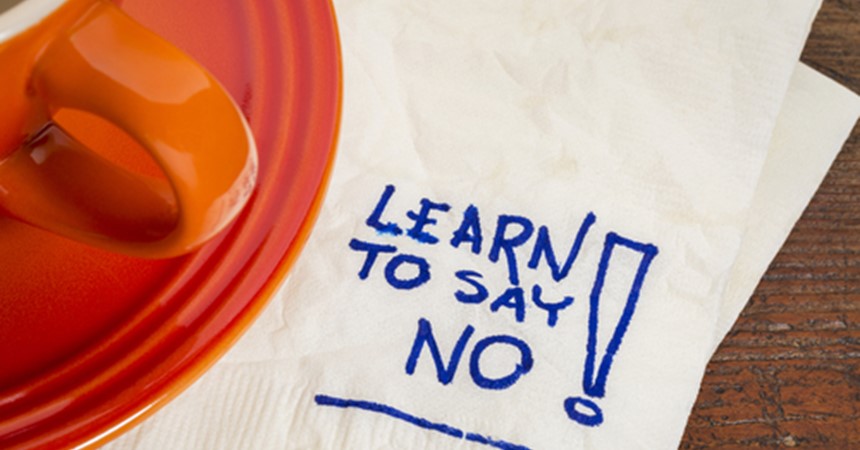A – You are clearly a person who cares about others, but I also wonder if you strongly care about what people think of you, particularly as you say you are a “people pleaser”. Many people find it difficult to say no, for a variety of reasons, and they are not necessarily bad reasons. For example, people genuinely care for others and want to do the best for them, especially when it comes to close family and friends. Sometimes we say yes out of a sense of obligation, because that’s what we do for family; sometimes saying yes helps us avoid conflict; and other times, we just want to be liked and don’t want to create a negative impression. Just a disclaimer: if this were a work-related issue, my advice would be different because sometimes we have obligations that prevent us from saying no.
Struggling to say no can be quite debilitating. It is easy to lose yourself and forget that you are also important too. Stress levels go up and you can end up not having time to live your own life. Your physical and mental health can also suffer if you are too busy looking after others. Resentment towards the people to whom you are saying yes can grow, as well as resentment towards yourself. Long term, saying yes constantly is just not sustainable or fair to you. It’s also not fair to your own family, and any immediate family you live with such as children and a partner.
You can learn to say no but still be respectful of others. Try some of the following.
- If you are asked to do something immediately, and you would like to help but you know you can’t drop everything straight away, you don’t have to say no. You can say yes, but let the person know when it is convenient for you to help. Even if it doesn’t suit their timeframe, you can still help when you are available. Be realistic and leave the final decision with the other person – they can choose to accept your help at a later date or find another option.
- Just say no, and keep it simple. You could say, “I’m really sorry, but I’m not available”; “I’m sorry, I won’t have time”; “I’m sorry I can’t lend you the money” – and you don’t have to explain yourself to anyone. As soon as you try to justify why you have said no, some people will keep pushing you into further conversation and it may go around in circles until you agree. Stay firm and don’t get too caught up in the other person’s story, as guilt may make you give in. You could always help the person come up with other options, but this is not really up to you. When it comes to children, this advice is especially important. Children, teenagers and our adult children, know that if they keep at it, we may just give in and say yes. I know this to be true from personal and professional experience, and I end up becoming annoyed with myself at giving in to pressure.
- You don’t always have to reply immediately, especially if you need time to figure out how you will manage the request. Let the person know you will get back to them, being mindful of their timeframe too. Even if your answer is no, let them know as soon as possible.
- Don’t let guilt take over when you have said no. Try looking at the situation from a different perspective. Even if the person acts like you have hurt their feelings or have rejected them, saying no is not a rejection of a person.
- Remind yourself why you are saying no. Again, regardless of how bad you feel, consider how much better you will feel in the long run if you are including more balance in your own life? Saying no can temporarily increase your stress levels and even make you feel anxious, but if you want to say no, ignore your pounding heart; or fear of saying the word no. Do it anyway and then find a way to deal with any stress or anxiety. Saying no is going to give you more time to look after yourself, which is better in the long term for you and your family.























































































